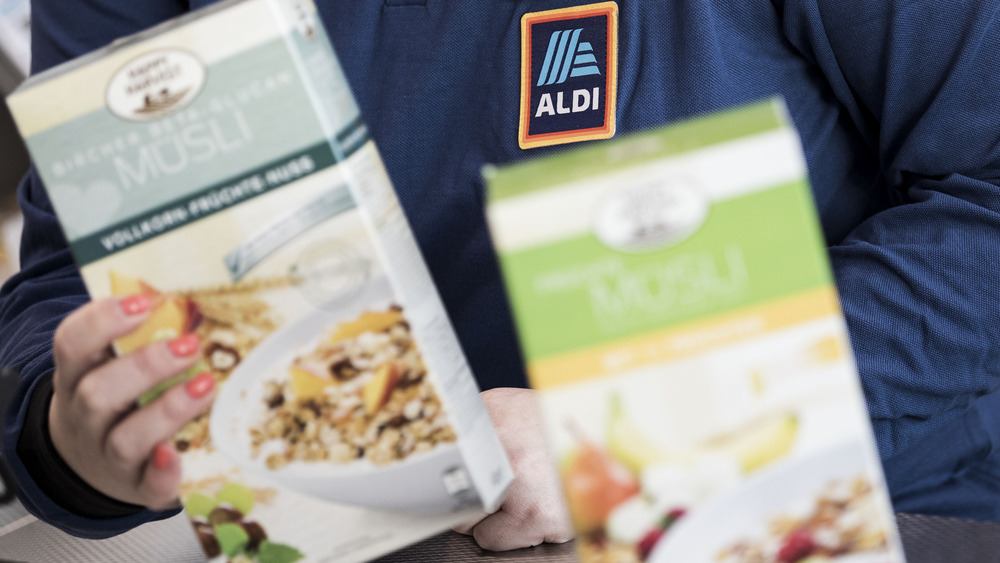A Look At Aldi's Rigorous Product Testing Process
After a 2017 announcement that they were gearing up to be a major presence in the American grocery store scene, it's safe to say that here in 2021, Aldi is making good on that goal (via RTE). According to the chain's own website, after opening its first United States location in 1976 and slowly growing, the store has now ballooned to "more than 2,000 locations across 36 states."
Established in Germany and widespread throughout Europe, Aldi garners a lot of attention here in the U.S. for its remarkably low prices and its cult items. While low prices are almost always an undeniably good thing, they're partly what contributed to a poor reputation for Aldi for years, which might also explain the company's slow growth stateside. Aldi is famously tight-lipped on its inner workings but revealed some truths that explain just how costs can remain so low for customers while items can have such good quality. The Guardian reports that Aldi limits extra packaging. The Tennessean says they stock fewer items. Lauren Greutman writes that most of their products are private label. Indeed shows that they employ fewer people than other supermarkets, and Aldi's own site discusses charging for shopping bags, to name a few reasons.
That explains the attractively low prices, but what about the quality factor that has built such a fan base, especially considering 90 percent of items on shelves are private label? Thanks to a rare behind-the-scenes look Aldi offered, we have an answer.
Careful testing leads to top-notch products
Aldi lifted its veil of secrecy for one day in 2013, inviting Telegraph journalist Tom Rowley to the chain's United Kingdom headquarters. Today, it's worth digging into what Rowley found, as Aldi has become so much more ubiquitous and such a more popular shopping option here in the U.S.
Assuming the 2013 standards still hold, twice a day, Aldi's buyers visit the store's test kitchen to sample each product before it can hit shelves. This team ends up sampling about 180 meals per week, one buyer named Julie Ashfield told The Telegraph. They also try each item a whopping 30 times before it can meet customers in the aisles, and then, just to ensure the quality never wanes, they continue to sample these products at least once a year, plus any time another grocery store chain introduces anything similar.
The buyers actually test potential Aldi items against two "benchmarks," comparable products from rival stores. Food and drink items are scored from one to five for how they look, feel, and taste. If anything receives a less than stellar score, it goes back to the drawing board and must be tested again after the recipe's been adjusted. This rigorous process can explain why shoppers have come to love Aldi products so much, and how they can boast high quality at low prices. "Discount stores used to be places where people needed to shop," Aldi Managing Director Tony Baines pointed out to The Telegraph. "Now people actually want to shop here."

